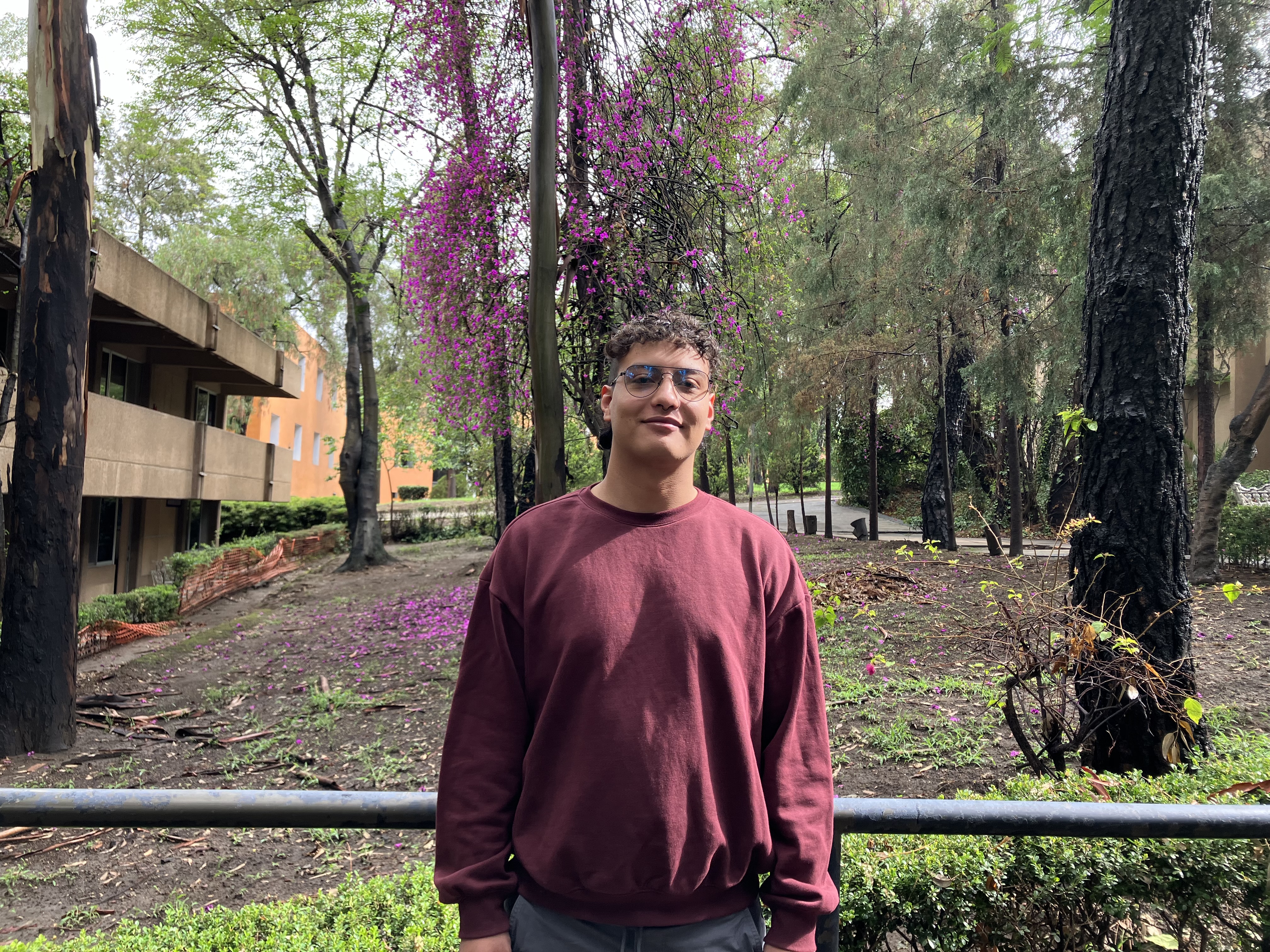INAOE student selected to participate in the Second School on Dark Matter and Neutrino Detection in Brazil
Santa María Tonantzintla, Puebla, July 3, 2024. John Jairo Correa Guzmán, a graduate student at the National Institute of Astrophysics, Optics and Electronics (INAOE), a center coordinated by the National Council of Humanities, Sciences and Technologies (Conahcyt), was selected to participate in the Second School on Dark Matter and Neutrino Detection, which will take place from July 8 to 19 in the city of Sao Paulo, Brazil.
The School is organized by the South American Institute for Basic Research, part of the International Center for Theoretical Physics (ICTP), located in Trieste, Italy. The School will be held at the Paulista State University in Brazil. John Jairo Correa was one of the 20 selected to participate in it.
Originally from Bogotá, Colombia, John Jairo Correa is a physicist. In an interview, he says that after completing his undergraduate degree in his country, he looked for options for a postgraduate course where he could continue researching solar physics, a topic he had been working on since college. The first one he found was the postgraduate program in Space Science and Technology at INAOE.

“It was my first and only option. I took the preparatory courses and came here,” he says. Currently, he is a second-year student of the master's degree.
The student adds that at the university in Colombia he worked on the topic of solar physics, specifically on coronal mass ejections and solar wind.
“Here at INAOE I am involved in the area of interplanetary space environment, basically in the detection of cosmic rays that interact with the Sun's magnetic field, using data from the HAWC gamma ray observatory to be able to establish energy quotas for gamma rays coming from the Sun,” he explains.
Regarding the school, he explains that it is organized by the ICTP, which has alliances with the South American Institute for Research at the Paulista State University in Sao Paulo. “At the School we will have different theoretical courses and we will do some experiments to get involved in this topic.”
Finally, John Jairo Correa hopes that the School will give him the opportunity to immerse himself in the cultural exchange, and to get to know Brazil.
“As for the Physics part, knowledge in the topics of dark matter and neutrino detection is very important, they are areas currently in development in which there are still many things that we do not know. Personally, I do not know many ways of detecting neutrinos or how they are related to dark matter and this opens the mind so that one can also make a contribution in the future.”
Luis Enrique Erro # 1, Tonantzintla, Puebla, México, Código Postal 72840, Tel: (222) 266.31.00, difusion@inaoep.mx
This work is licensed under a Creative Commons Attribution-NonCommercial-NoDerivs 2.5 Mexico License.


